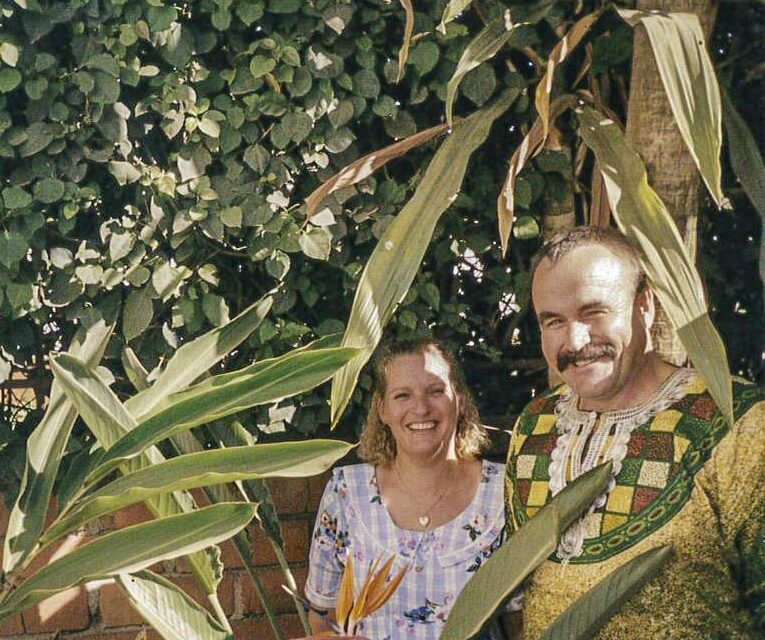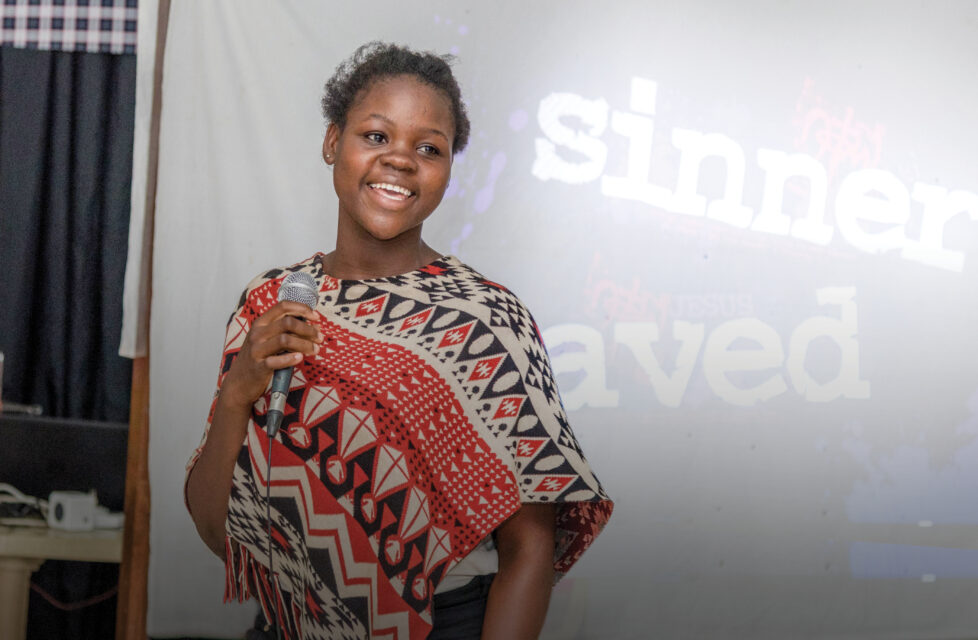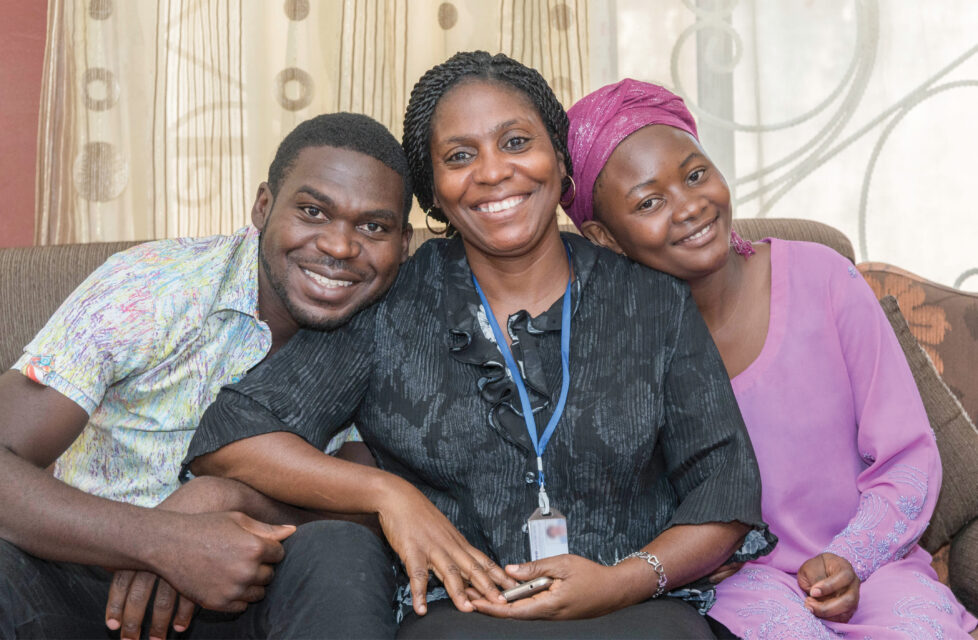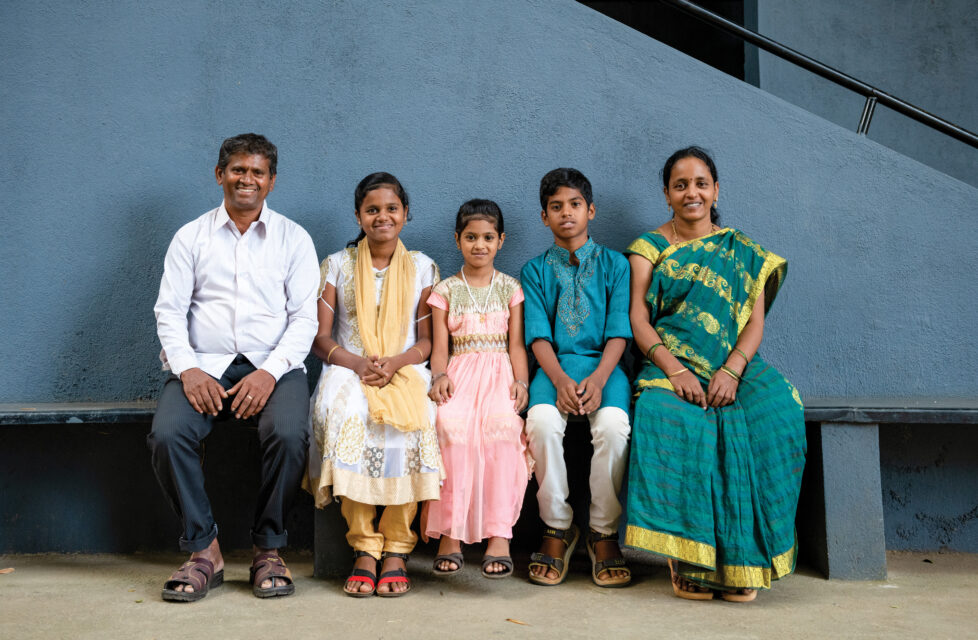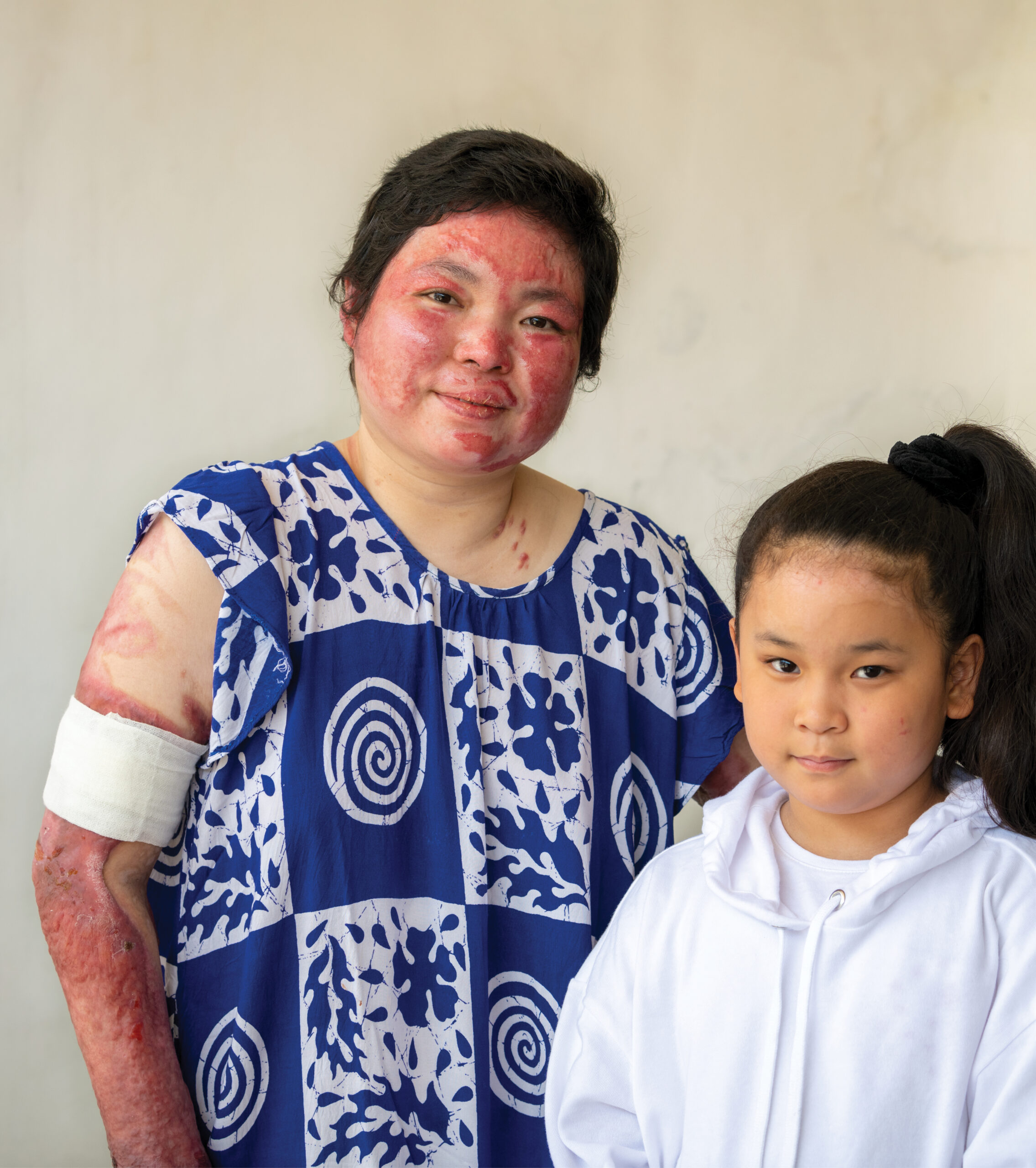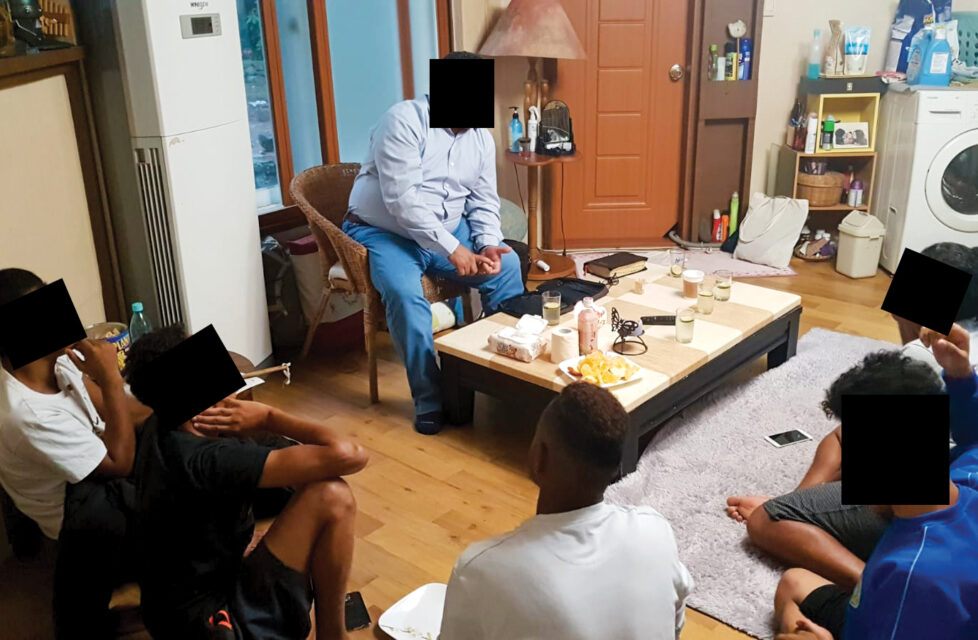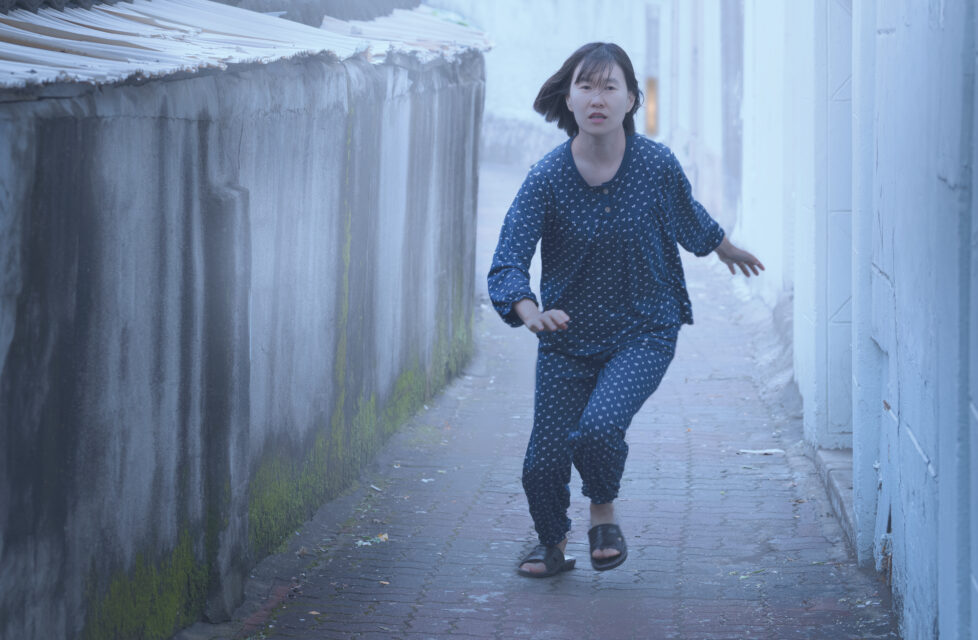In the late 1990s, a Wisconsin couple left their farm and family behind to share the love of Christ in Africa. Years later, their loved ones are left with grief and lingering questions about how and why the couple were killed at the Christian training center where they served. In 1997, Warren and Donna Pett sold their 96-year-old family farm and 110 Holstein cows in Mukwonago, Wisconsin, after sensing God’s call to the mission field. They said goodbye to their children, a grandchild, their parents and other relatives who lived near the farm, then boarded a plane to go serve strangers in a faraway land. The couple, both in their early 40s, had made the decision to enter the mission field a few years earlier, following a missions conference at their church. They felt God nudging them to use their decades of farming experience to teach agriculture to African youth and share the gospel along the way. The decision didn’t surprise their children, Marita Verhalen, Saul Pett and Ezra Pett. They have fond memories of their mother reading her Bible and praying each morning on the couch, and their father’s faith is also part of their family heritage. Warren often
Read MoreHow a young woman overcame the pain of losing her father and forgave his murderers On the evening before Easter Sunday 2012, Comfort Jessy sat in the enclosed courtyard of her home in Nigeria chatting with her parents, older siblings and some neighbors. Around 11 p.m., they heard bombing in the distance, and less than 60 minutes later, Boko Haram militants were burning the church next door and pounding on the gate in front of their home. Comfort’s mother, Juliana, helped her husband hide in one of the back bedrooms, covering him with clothes. “God, we are in Your hands,” she prayed. Several militants entered to search the house while others dragged Juliana into the courtyard, striking her with their guns and taunting her about her faith. “You Christians say God has a son,” they said. “Call on that son! Today is your last day; your own life is over.” They then forced Julianna to kneel. “They said that if they don’t get their man, they will kill her,” Comfort said. “My mother said, ‘Even though I see your gun, I will not fear you.’” One of the men gave a shout from inside the house — he had found
Read MoreAisha Granger is not your typical seminary student. She’s 43, a divorced mother of two children, and she’s Fulani, a member of the predominantly Muslim nomadic tribe spread across West Africa. Her journey started with a desire to learn. “I really wanted to go to school,” Aisha said, “but growing up in a Muslim environment as a Muslim girl, your orientation is toward growing up and being a good Muslim, a good mother.” Aisha followed cultural norms by marrying at age 18 and giving birth to her first child a year later. As a young woman, she studied at the College of Islamic Studies in Bauchi state and became a state representative for the Federation of Muslim Women. She even converted her living room into a mosque where women could pray, since Islam does not allow women to mix with men for prayer at the community mosque. “I used to be a very fanatical Muslim,” she said. “We were taught that Christians are infidels and we should not befriend them; we should not listen to them because they are not worshipers of Allah. We were always encouraged to stay away from Christians because they will make us turn away from
Read MoreAs villagers watched Ritesh exchange the emptiness of worshiping idols for a relationship with the one true God, they accused him of converting his family to Christianity. For 35 years, Ritesh regularly performed puja at a temple in southern India. Like millions of other Hindus who practice the ritualistic prayer, he lit sticks of incense, displayed colorful flowers, listened to meditative music and worshiped various Hindu idols. He often spent more than an hour in the temple meditating on Hindu texts. But as much as he longed for spiritual growth through these rituals, he and his family never felt a connection with their gods or found the peace for which they were yearning. Then, one day in 2016, a local shopkeeper named Pascal gave him a Bible after a lengthy discussion about how to know God. Ritesh read the book daily … and soon learned that finding peace with the true God would mean losing peace with his neighborhood. finally meeting god On an invitation from Pascal, Ritesh attended his first church service a few months after receiving the Bible. He was deeply moved by the Scripture readings, the sermon and the way the Christians worshiped. “It was like something
Read MoreThe Day of the Bombings More than a year after suicide bombers killed 15 people at three Indonesian churches, the survivors continue to heal from their injuries and question why they were attacked — even as they hold fast to their faith in Jesus Christ. Before sunrise on May 13, 2018, Wenny Hudojo hurried to get herself, her two sons and her niece dressed and ready for the second service at Saint Mary Immaculate Catholic Church in Surabaya, East Java, Indonesia. She and the children then made their way through the busy streets of the second largest city in Indonesia to gather for worship, as they did every Sunday. “It was a typical morning,” Wenny recalled. “We went to church every Sunday, but my husband wasn’t able to come with us this time because he was sick.” As they walked through the church gate, her sons, 8-year-old Nathan and 11-year-old Evan, talked excitedly with their 11-year-old cousin, Evelyn, about the games they would play after church. After passing the church security guard on their left, Wenny heard a motorcycle zip past them on the right. She turned to see two young men on the bike heading straight for the church
Read MoreAfter spending five years building relationships with 40 North Koreans in China, a faithful Chinese Christian eventually led one man — a North Korean government official — to Jesus. Lee Joon-ki scanned the Chinese coffee shop carefully for the right place to sit. The shop’s owner, a fellow Christian, had told him about a middle-aged laborer from North Korea who was in the shop, and Joon-ki wanted to sit in just the right spot to start a conversation with him. After sitting down at a table near the man, Joon-ki began a casual conversation with him, even managing to draw the coffee-shop owner into the discussion. These conversations, which can quickly turn dangerous for everyone involved, are what he lives for; Joon-ki is a front-line worker who shares the gospel with North Koreans inside China, near the border with North Korea. “Encountering these North Korean people, building relationships and leading them to Christ, is God’s work; it’s full of God’s grace,” he said. “Just meeting with him for an hour is so precious. It is not something we can do normally. Each time could be last time.” Joon-ki, an ordained pastor, has served as a front-line worker for over six
Read MoreHow a former Muslim took the gospel to other Yemenis and nearly lost everything in the process As a devoted Muslim, Ibrahim was always ready to defend the Quran. So when a man walked into his small store in Yemen one day in 1997 and asked him a startling question — “Have you ever read the Bible?” — he proudly told the man that he believed the Bible was full of error and distortion. At the end of their conversation, the man gave Ibrahim a New Testament and urged him to read it for himself. Ibrahim agreed, intending to make note of every problematic verse he found. But the more he read the Bible, the more problems he saw with the Quran. “I was trying to help him become a Muslim, but it caused me a headache,” Ibrahim recalled. After reading Jesus’ teachings to “love your enemies” and “bless those who curse you,” Ibrahim considered leaving Islam. He knew, however, that following Jesus Christ would bring shame to his family and endanger his life. At the man’s urging, he continued to study the Scriptures more deeply and ask God to reveal the true way to him. Finally, about a year
Read Morewatching the church go underground After turning away from Christ in the early days of Kim Il Sung’s Communist regime, a North Korean woman was led back to faith by a single Bible verse. Rhee Soon-ja has vivid memories of her father reading the Bible to her and her six siblings when they were children. She remembers that the verses were printed vertically, rather than horizontally. And although now 82 years old, she can still picture the phrase “Christ Is Lord of This House” hanging from a wall in their home. “My parents prayed that God would use me as His servant,” she said, recalling another childhood memory. “I grew up dreaming of becoming an evangelist.” Those were the days before Korea split into North and South, communist and free. Those were the days when the Christian faith flourished in northern Korea. “There were many Christians,” Soon-ja shared from her living room in South Korea. “I attended the Methodist Church. All the congregations gathered every Sunday.” When Soon-ja was a young girl, her family was among the first to experience persecution under the rule of Kim Il Sung, North Korea’s first leader. Today Christianity is illegal there, and those who
Read Morea dangerous secret Once fearful of even seeing a Bible, a former North Korean border guard now embraces it. Nearly every day for 11 years, Park Chin-Mae dutifully monitored North Korea’s border with China. From 8 a.m. to 10 p.m., he watched for North Koreans attempting to defect or smuggle contraband into the country. Chin-Mae took pride in his work as a border guard, even though he was guilty of the same illegal activities for which he arrested others. Like many North Koreans, he relied on illegal smuggling simply to survive. becoming the enemy When another guard reported Chin-Mae’s smuggling ring, he spent 60 torturous days in prison. And he hadn’t even smuggled the most dangerous item into the country — a Bible. “Those who let Bibles into North Korea had a more severe punishment than someone who kills people,” Chin-Mae said. For Chin-Mae, getting caught smuggling meant being reduced from a respected soldier to a worthless prisoner. For the first 10 days, he was forced to stand in a bowing position and was allowed to move only to use the restroom. If he moved, even during the night, he was beaten mercilessly with a wooden baton. For the next
Read MoreChoon-yei was born into a comfortable and secure family, by North Korean standards. Her father was a military officer, and her mother was a housewife. Since family background largely determines the future for North Korean citizens, her family could expect a good life. In 1995, however, just a few years after Choon-yei’s birth, North Korea experienced the worst famine in its history. Millions died of starvation. And even though her father was a military officer, Choon-yei’s family received only two fistfuls of corn flour each day — not nearly enough to feed a family of four. In desperation, they gave up on the government’s ability to provide for them and began dealing on the black market. But the extra corn flour that her mother had obtained from a relative and sold illegally still barely provided for their family. “Any North Korean who survived that time period is a living miracle,” Choon-yei said. “North Koreans had to break the law just to eat a meal. State security agents would confiscate anything they uncovered on the black market and eat it themselves.” The famine was just the beginning of Choon-yei’s suffering. Her parents died when she was in her early teens, and
Read More
